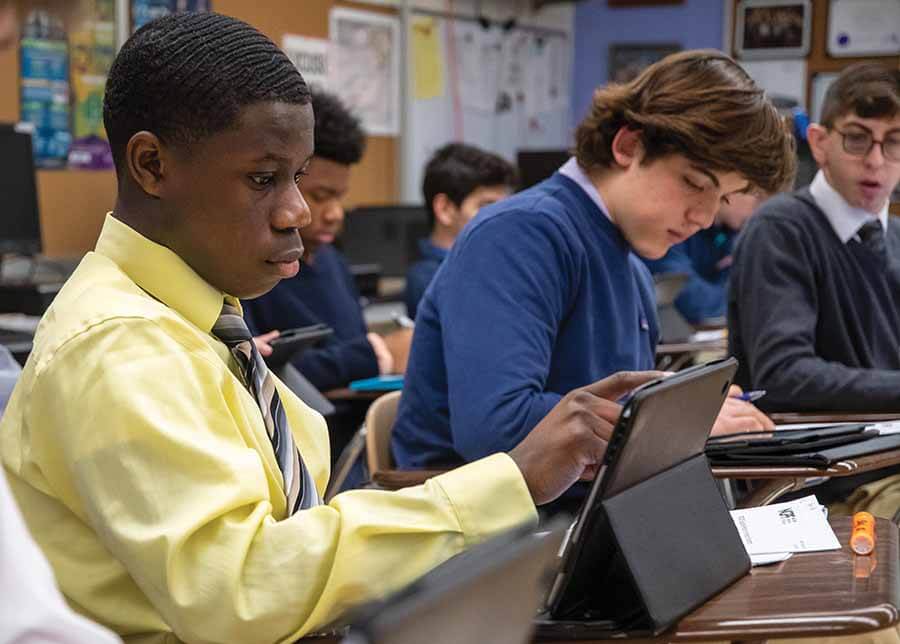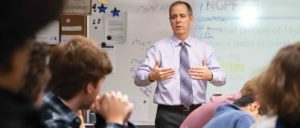
A visit to a faith-based school quickly tells whether its mission is thriving or foundering. It’s in the buzz around campus, the architecture and its upkeep, the way students carry themselves and which classes the faculty emphasizes – whether they are trying to drive a more impressive college placement record, or to help form adults ready to enter the world.
The latter objective can be seen at Mount St. Joseph High School, an all-boys school with an enrollment of 920 in Baltimore’s Irvington neighborhood, in Julius Prezelski’s Personal Finance class.
A member of the school’s business department, Prezelski saw how a lack of attention to financial literacy could send students into the world at a disadvantage, saddled with debt, delaying home-buying, marriage and opportunities to grow into the leaders they were being educated to become.
“I began it about six years ago,” Prezelski said. “The principal and business department and alumni met and agreed the course was necessary. It’s life skills.”
With help from California-based Next Gen Personal Finance, Prezelski began a program about practical skills in the financial world: the college financing process, interest rates, budgeting, handling money through financial apps, credit cards, 401(k)s.
Starting in the 2020-21 school year, the class will become a graduation requirement for Mount St. Joseph students.
In an early December class, Prezelski broke his students into groups, each researching one of the top mobile payment apps: PayPal, Apple Pay, Venmo, Zelle, etc. Each has its pros and cons, and the classroom suddenly became a group of discriminating comparison shoppers. Many had already used payment apps. Prezelski reminded them how a digital purchaser is more likely to spend beyond his or her means when money is more abstract.
“I came in thinking I knew how to save money and manage my finances,” senior Robin Paranilam said, “but throughout the year I understood how much I actually didn’t know. Mr. P. covers a wide range of topics such as credit, paying for college, how to do your taxes and how to invest well. These are all topics and things that any adult must know how to do, regardless of what career they’re in.”
Next Gen Personal Finance, a 501(c)3 nonprofit organization, was an ideal partner for Prezelski. Its mission targets the ambitious goal of giving all U.S. secondary students access to a personal finance course by 2030.
Mount St. Joseph saw good reason to get ahead of the curve and send graduates into the world prepared to lead.
Joseph O’Brocki, a junior, plans to attend the University of Maryland, having already examined his college financing options and what sort of debt it would be wise for him to carry.
“Every day, I am able to take something away from his (Prezelski’s) class and use it in the real world,” O’Brocki said. “His chapter on budgeting has saved me so much money, because now I start to think before I make every purchase, as well as knowing all the marketing techniques that grocery stores and companies use to lure me in to making dumb purchases.”
Even more than testimonials from students, the feedback from parents is what has underscored the importance of the Personal Finance class.
“What we hear most from parents is that they wish they had this class when they were in school,” Prezelski said. “That’s what tells us we’re doing something right.”

